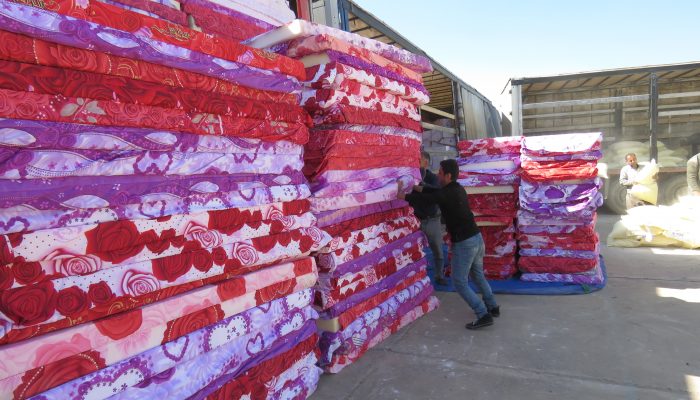Debate
Café Humanitaire: Strategies born out of the necessity to survive

ZOA - Iraq
What are people’s strategies to survive after conflict and disaster? And what lessons can we draw from the past to help people the best way possible?
On Wednesday 14 June, practitioners and academics on humanitarian aid and reconstruction gathered in The Hague to discuss these issues during a new edition of Café Humanitaire. This edition was organized around the book launch of ‘People, Aid and Institutions in Socio-economic Recovery: Facing Fragilities’, edited by Professor Thea Hilhorst, Bart Weijs and Gemma van der Haar.
What does socio-economic actually mean? Starting from this question, Thea Hilhorst, Professor of Humanitarian Aid and Reconstruction at the Institute of Social Studies (ISS – Erasmus University) explains that it is part of our daily lives, as it revolves both around the social and economic situations that people are in. ‘In fragile systems, social, political and economics do not add up. That is what we discuss in this book: real situations that people face when recovering from disaster and conflict.’ In the book, five main lessons are presented that have to be taken into account in socio-economic recovery in fragile settings:
1. People play the key role in reconstructing their lives and finding ways to access markets, authorities and aid
2. Aid actors are also socially embedded
3. Recovery involves overt and covert contests over the prospect of development
4. Micro-politics of recovery matter
5. Institutions in fragile settings may acquire properties of rational institutions
After video contributions from the authors of the book, in which the five main lessons were presented, the floor was given to Dirk Salomons. Director of the Humanitarian Policy Track at Columbia University. He was very clear in his speech about the value of the book: ‘This book provides a lot of very real examples for development work’. He emphasized that aid organizations can apply the examples from the book to how they work in the field. This message was repeated in the discussion panel that included two of the authors of the book. Holly Ritchie, consultant international development and academic researcher at ISS, and Patrick Milabyo, researcher at ISS, both emphasized that, when providing aid, organizations must understand the needs of local people to understand the bigger picture.
Answering a question from the audience about possible solutions to the problems discussed in the book, Patrick Milabyo emphasized: ‘People do not spontaneously participate in development. Aid should be able to facilitate the needs of the people in fragile systems.’ And while this was not a new message, it will become increasingly important in the future.
For a review of the book, written by Dirk Salomons, please click here
This book provides a lot of very real examples for development work
Dirk Salomons
People do not spontaneously participate in development. Aid should be able to facilitate the needs of the people in fragile systems
Patrick Milabyo